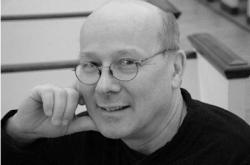1780 - 1825 Person Name: John Marriott (1780-1825) Topics: Church Year Trinity Author of "Thou, whose almighty word" in Ancient and Modern Marriott, John, M.A, son of E. Marriott, D.D., Rector of Cottesbach, near Lutterworth, was born at Cottesbach, in 1780, and educated at Rugby, and Christ Church, Oxford. He was the second of two who obtained honours in the schools in 1802, the first year in which there was a public examination for honours at Oxford. He was also Student of Christ Church, and for about two years a private tutor in the family of the Duke of Buccleuch. The Duke presented him to the Rectory of Church Lawford, Warwickshire. This he retained to his death, although his wife's health compelled him to reside in Devonshire, where he was successively curate of St. Lawrence and other parishes in Exeter, and of Broadclyst, near Exeter, where he died March 31, 1825. His published works include a volume of Sermons which he issued in 1818, and a posthumous volume of Sermons, published by his sons in 1838. His hymns were never published by himself, nor in book form by any one. A few appeared in print during his lifetime, but without his permission. These include:—
1. A saint? 0 would that I could claim. Holiness desired. "Written off almost at the moment, on hearing the name applied in a scornful way at a party, about 1813." It was printed in The Friendly Visitor, 1834.
2. Thou, Whose Almighty word. Missions. Written, his son says, "about 1813." It was printed in The Friendly Visitor, July, 1825, in 4 st. of 11., with the Title "Missionary Hymn," and without signature. This text differs only in two or three words from the original as supplied by the author's son to Dr. Rogers and published by him in his Lyra Brittanica, 1867, p. 395. Two texts are known which are received as original, the first the undoubted text in Lyra Brittanica, and the second that given by Lord Selborne from the Collection of Dr. Baffles, Congregational Minister of Liverpool.
3. When Christ our human form did bear. Christ's love of Children. “Written in 1816 for the Parochial Schools, Upottery, Devon."
-- John Julian, Dictionary of Hymnology (1907)
=================
Marriott, J. , p. 715, i., No. 1, is in the Fuller-Maitland Hymns for Private Devotion, 1827.
--John Julian, Dictionary of Hymnology, Appendix, Part II (1907)
John Marriott


 My Starred Hymns
My Starred Hymns






